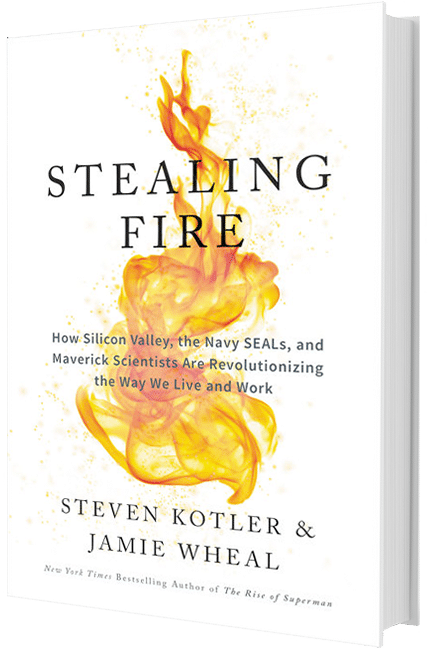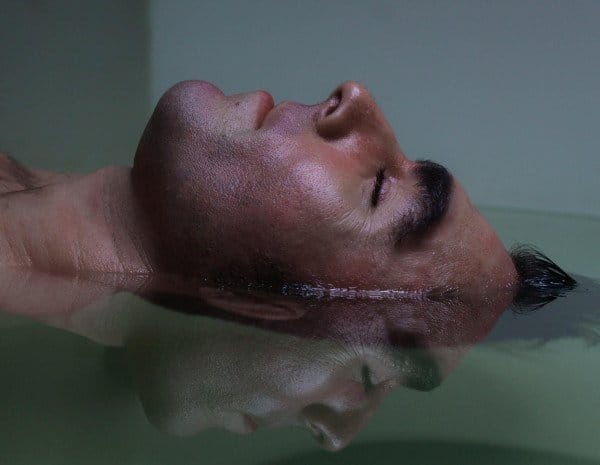Floating is a great tool for enhanced learning
Give full attention to learning, absorb knowledge more quickly, and understand more deeplyFloating as a tool for learning

Deep relaxation and stress relief
Floatation is a powerful tool for enhanced learning, and it can be used in several complementary ways.
Firstly, the deep relaxation that results from the float experience fosters a calm mind. When your mind is calm you are able to give full attention to the materials you are learning from. You can absorb and retain the knowledge more readily. The cumulative effect of regular floating empowers you to study more effectively. It can provide stress relief, and can consequently also be an aid to exam preparations.

No distractions
Secondly, the silent darkness of the float environment offers a place and time uniquely free of distractions.
Sometimes you really need to be able to give something your sustained, undivided attention in order to be able to really understand.

A calm receptive mind
Thirdly, the float tank itself is the ideal place to study.
When suspended weightless in the darkness, the brain enters a highly receptive state. It becomes ‘hungry for stimulus’ so that when a stimulus is provided, a maximum intensity of attention occurs.
Audio recordings can be played in the float tank. This gives an ideal opportunity for information to be absorbed faster, understood more deeply, and retained more clearly.

US Navy Seals learned a language in six weeks
Steven Kotler and Jamie Wheal documented a great example of floating for enhanced learning, in their book ‘Stealing Fire‘.
Kotler and Wheal gained unprecedented access to the training programme of the US Navy Sea Air Land teams (SEALs). In the SEALs’ headquarters in Norfolk Virginia is a facility called the Mind Gym. This area is packed with a whole host of cutting-edge tools to train their people to the maximum extent possible, including a suite of floatation tanks. The SEALs worked with researchers at Advanced Brain Monitoring in Carlsbad California to understand how to use the float environment for accelerated learning.
By using the float tank to eliminate all distractions and stimulate specific brainwave states, the SEALS were able to cut the time it takes to learn a foreign language down from six months to six weeks.

Research on floating and learning
Peer-reviewed research is gradually catching up with developments in floatation, but examples like these can sometimes be more powerful. Another example is the prevalence of floatation in the training programmes of elite athletes and sportspeople. If you want to know what really works, the people to watch are those whose lives and careers depend on getting it right.
However, the work of the navy SEALs does build on a body of scientific research into the effect of deep relaxation on learning, and some interesting studies specifically using float tanks.

Introducing Thomas E Taylor
Back in 1982, Thomas E Taylor conducted a rigorously controlled experiment into the effects of floating on learning ability. He wrote a paper called “Learning Studies for Higher Cognitive Levels in a Short-term Sensory Isolation Environment”.
You can find out more about his fascinating work in Michael Hutchison’s book: ‘The Book of Floating’.

Testing the theory
Taylor selected a cohort of 40 subjects from a total of 450 volunteers. He chose them to be as similar as possible, eliminating many variables including gender, age, dominant hand, ethnicity, weight, physical activity, EEG patterns, and even the stage of their menstrual cycle.
The control group listened to a 75 minute tape while lying on a sofa in a quiet darkened room. Meanwhile the other group were listening to the same recording while floating in the tank.
The two groups were then tested on three measures: recall of facts, ability to apply the knowledge, and the ability to synthesise the knowledge to come up with an original solution to a problem.

‘A different cognitive level’
The floating group performed better on all three measures. Interestingly they outstripped the performance of the control group most dramatically on the most complex task: that of synthesising the knowledge into a new idea.
Taylor said:
“There’s no question that the experimental group learned more, but where they learned is the most important point. People who floated learned at a different cognitive level. The results show that the more difficult the concept, the bigger the difference in performance of the two groups”.

Enhanced learning is available to all
Learning is not limited to the intellectual, however. The power of visualisation while floating to improve physical skills is well documented, especially among sportspeople.
If you want to get up to speed on something new to you, floatation can empower you to do it quickly and comprehensively.
Whether you are preparing for a test, learning a language, a musical instrument, getting up to speed in a new role, or exploring a new sphere of human knowledge just for the fun of it, floating gives you the headspace to really grok the subject matter on a deep level.



